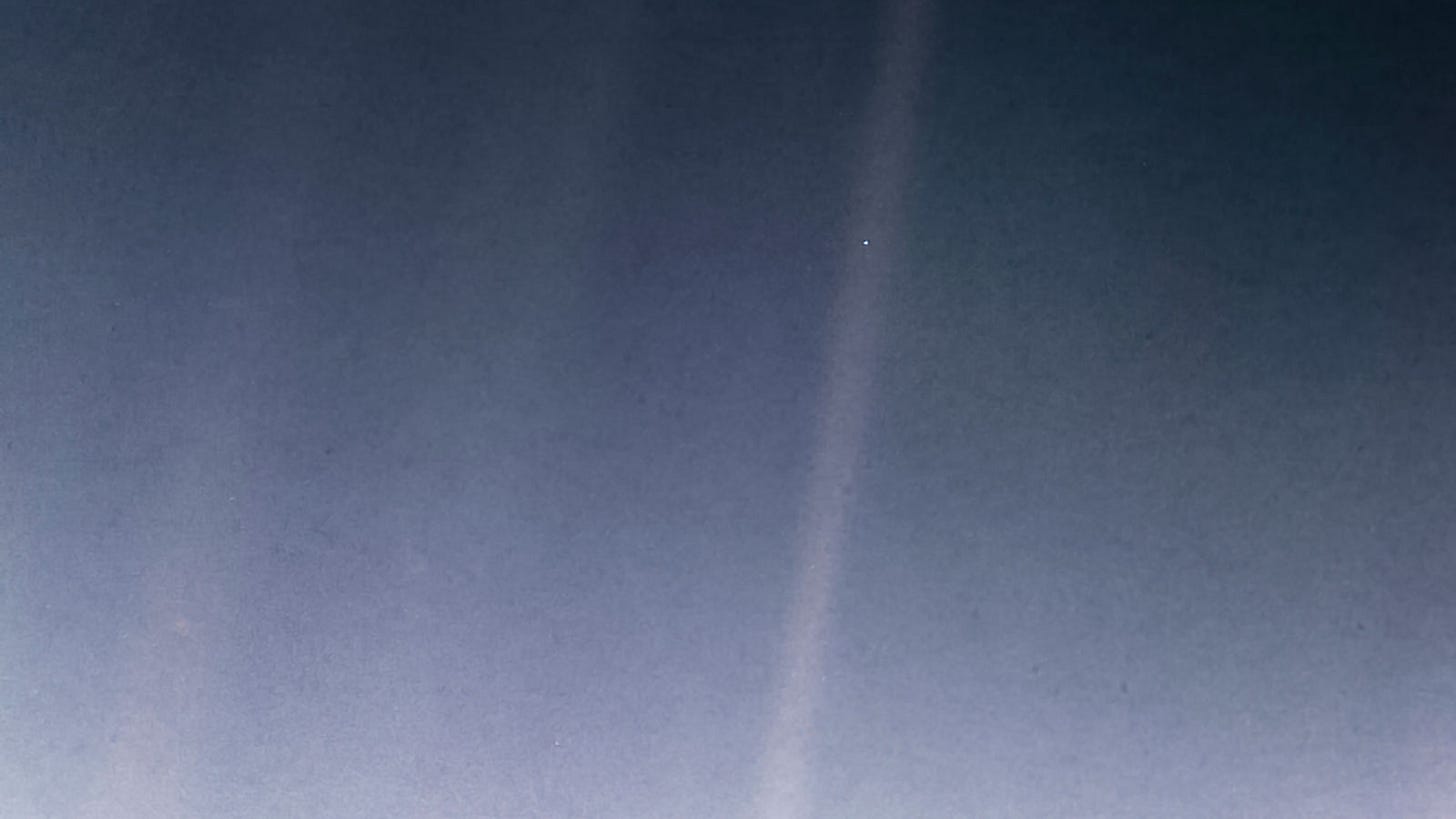The only home we've ever known
Today is Election Day in America. No matter the outcome when the votes are counted, we will remain a deeply divided nation. Rather than talk about politics, I am sharing this beautiful animation set to some of the most profound prose ever written by Carl Sagan. Please take a moment to watch. I do so every month. (Really.)
The Pale Blue Dot is a famous image captured by Voyager 1 as it was leaving the solar system in 1990. The spacecraft swung around to take a “family portrait” of the planets. Sagan played a big part in making this happen because he wanted to show humanity the fragility of Earth. In the, now famous, photo below our planet is nothing but a barely noticeable speck.

That speck is where we all live. Regardless of who wins this, ultimately inconsequential, contest between humans, that piece of dust amongst hundreds of millions of stars inside potentially two trillion galaxies will still be our home. It is up to us to figure out how to get along, prosper, and thrive together. Let us not pretend that any one man or woman holds ultimate power over us. Each day we should individually aim to make Earth a better place to live for all creatures. Just like any piece of dust, it could all be gone in an instant and nobody would really care.
Finally, I’ll leave you with the words of Carl Sagan because, even if you watched the video, it never hurts to see them again. Especially on a day like today.
That's here. That's home. That's us. On it everyone you love, everyone you know, everyone you ever heard of, every human being who ever was, lived out their lives. The aggregate of our joy and suffering, thousands of confident religions, ideologies, and economic doctrines, every hunter and forager, every hero and coward, every creator and destroyer of civilization, every king and peasant, every young couple in love, every mother and father, hopeful child, inventor and explorer, every teacher of morals, every corrupt politician, every "superstar," every "supreme leader," every saint and sinner in the history of our species lived there--on a mote of dust suspended in a sunbeam.
The Earth is a very small stage in a vast cosmic arena. Think of the rivers of blood spilled by all those generals and emperors so that, in glory and triumph, they could become the momentary masters of a fraction of a dot. Think of the endless cruelties visited by the inhabitants of one corner of this pixel on the scarcely distinguishable inhabitants of some other corner, how frequent their misunderstandings, how eager they are to kill one another, how fervent their hatreds.
Our posturings, our imagined self-importance, the delusion that we have some privileged position in the Universe, are challenged by this point of pale light. Our planet is a lonely speck in the great enveloping cosmic dark. In our obscurity, in all this vastness, there is no hint that help will come from elsewhere to save us from ourselves.
The Earth is the only world known so far to harbor life. There is nowhere else, at least in the near future, to which our species could migrate. Visit, yes. Settle, not yet. Like it or not, for the moment the Earth is where we make our stand.
It has been said that astronomy is a humbling and character-building experience. There is perhaps no better demonstration of the folly of human conceits than this distant image of our tiny world. To me, it underscores our responsibility to deal more kindly with one another, and to preserve and cherish the pale blue dot, the only home we've ever known.


